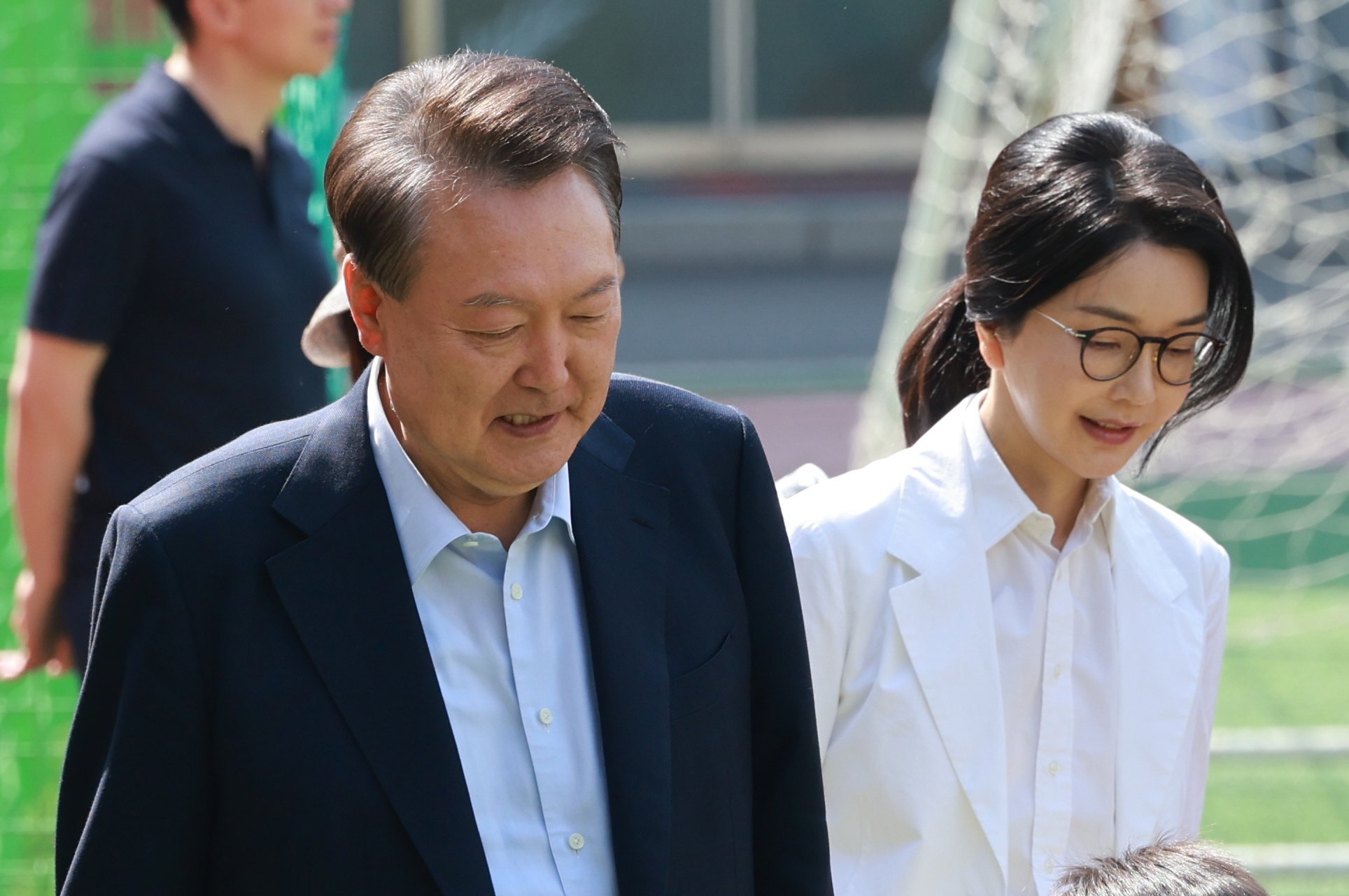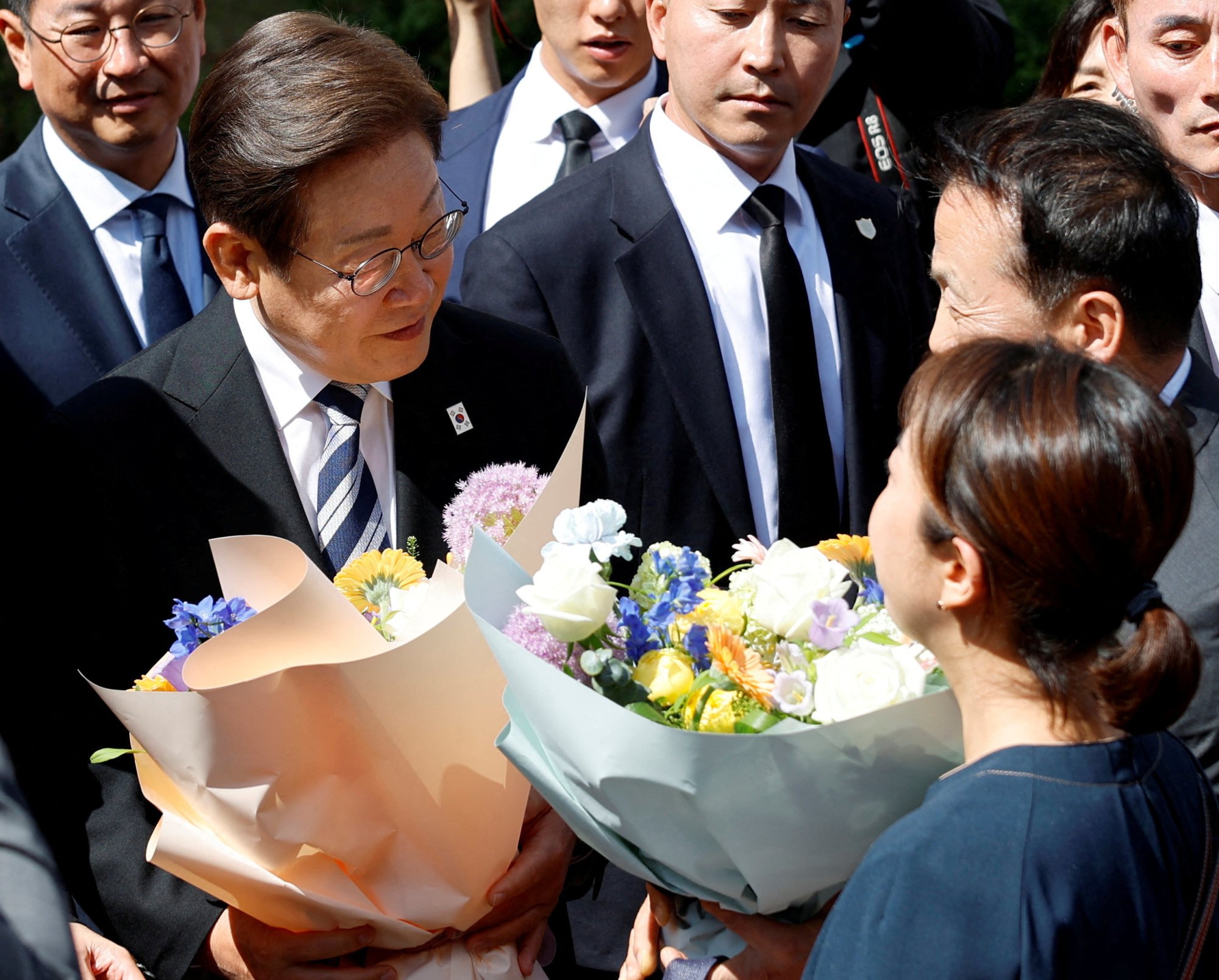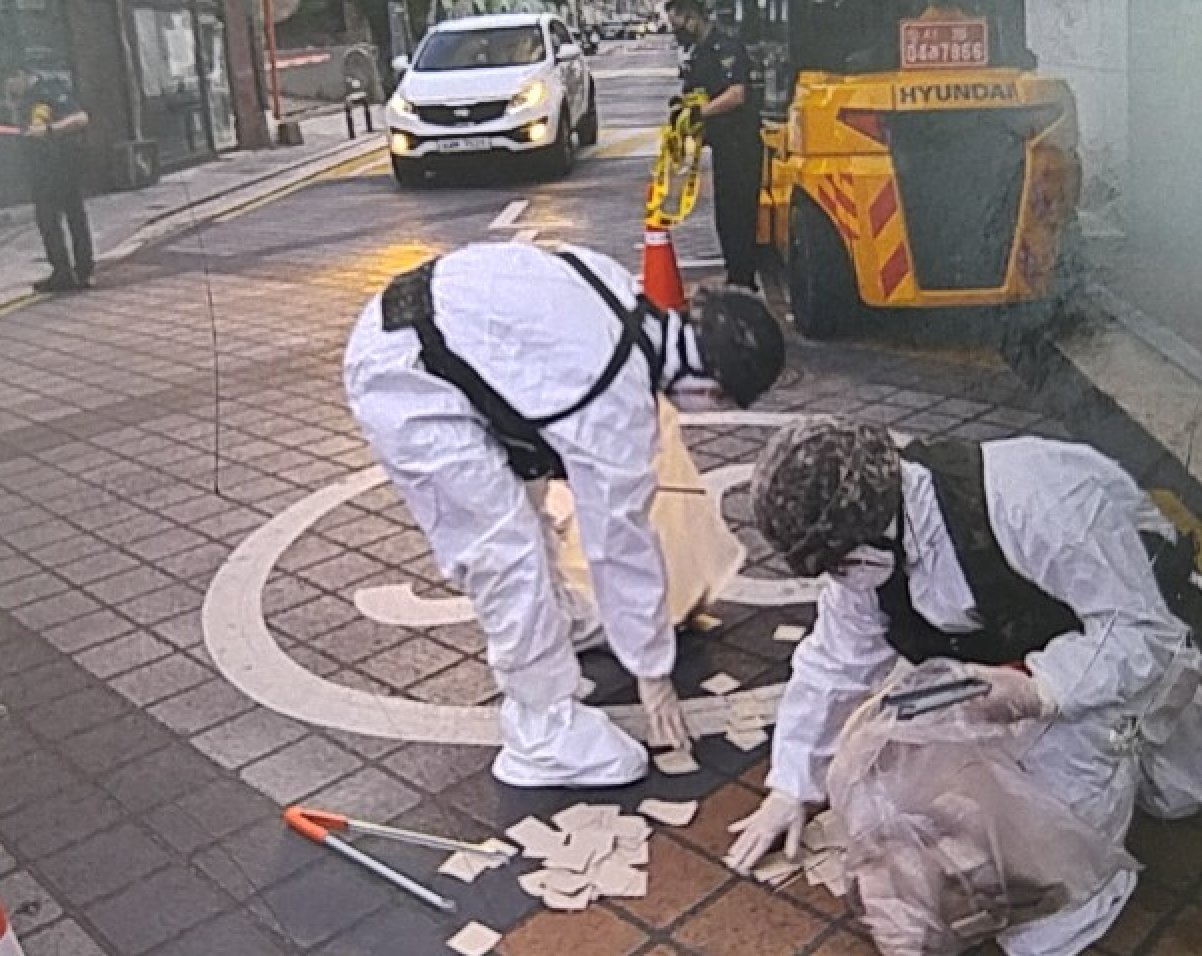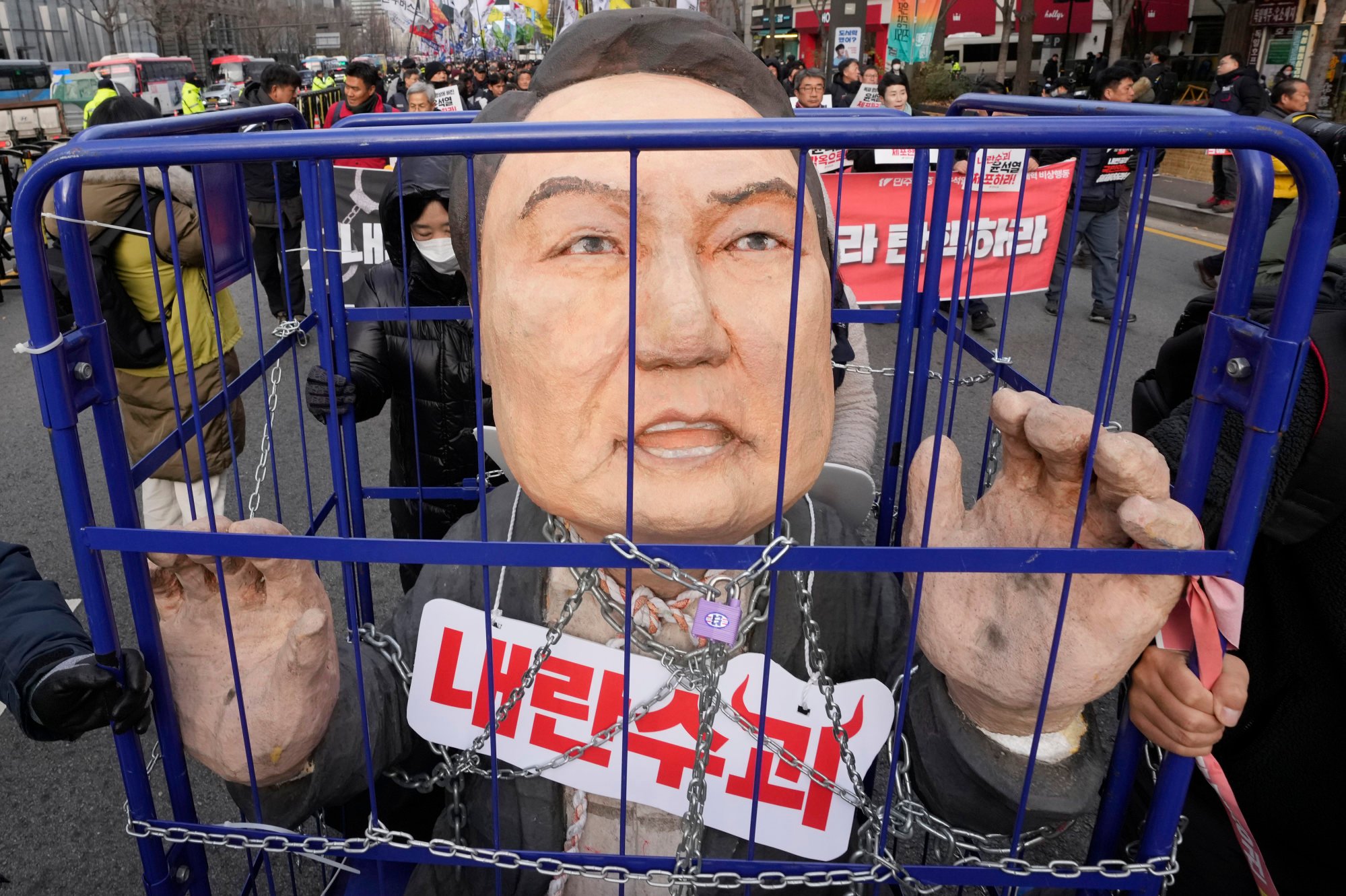South Korea’s probes of Yoon, wife: search for truth or ‘political revenge’?
The new ruling party has passed bills to investigate Yoon’s martial law declaration, former first lady and cover-up of a marine’s death

The passage of three laws mandating special investigations into corruption and abuse of power allegations involving impeached president Yoon Suk-yeol and his controversial wife marks a significant setback for South Korea’s conservatives, according to analysts.
Former first lady Kim Keon-hee was long considered beyond the reach of law enforcement, largely due to her outsize influence over her husband and state affairs.
But that “untouchable” status appears to be fading following a change in political leadership after six months of chaos sparked by Yoon’s martial law fiasco last December.
When the couple’s political nemesis, liberal President Lee Jae-myung, was elected on Tuesday, he pledged in his inauguration speech to “bring those responsible to justice through thorough investigations”.
Two days later, his ruling Democratic Party of Korea (DPK) pushed through bills calling for special investigations into the December 3 martial law declaration, alleged cover-up of a marine’s death in 2023, and the former first lady. The three bills are expected to take effect as early as this week, once formally endorsed by Lee.

“This move provides momentum to resolve the aftermath of the martial law decree and put the country’s politics back on a normal track,” Jhee Byong-kuen, a political-science professor at Chosun University, told This Week in Asia.
“It will also likely trigger a realignment within the conservative camp, with the People Power Party facing a shift away from its pro-Yoon faction.”
Following their defeat in Tuesday’s election, some People Power Party (PPP) leaders have blamed the loss on a failure to distance themselves from Yoon and his allies. Many voters viewed the martial law decree as a dangerous attempt to drag the nation back to an authoritarian era.
The special investigations could draw backlash from the PPP as perceived political retaliation, said Lee Jae-mook, a political-science professor at Hankuk University of Foreign Studies.
This was despite the fact that “the PPP and the former president covered up, hindered, or invoked veto power to block investigations into the insurrection allegations and other scandals”, he said.
“It requires a delicate balancing act by the Lee administration to ensure these judicial actions are not seen as political revenge, which could further deepen the already wide political divide.”
Lee had to be careful not to let the investigations overshadow his new administration and inflame partisan tensions, particularly as Yoon would be facing a high-stakes rebellion trial that could carry a death sentence, said Lim Sung-hack, a political-science professor at the University of Seoul.
Though such special investigations were essential to reveal the truth and “put an end to wasteful political controversies”, he cautioned that they should not be used for political vengeance or to gain electoral advantage ahead of local elections scheduled for June next year.
“Such a move would inevitably lead to extreme political confrontation between the ruling and opposition parties,” Lim said, adding there could be logistical challenges in finding enough personnel to conduct such large-scale simultaneous investigations.
During Yoon’s presidency, the DPK-controlled National Assembly had passed similar bills – all repeatedly vetoed by Yoon and the caretaker government that followed his impeachment on December 14.
Yoon already faces trial on insurrection charges related to the controversial martial law plan, which critics say was designed to extend his hold on power and shield his wife from legal scrutiny.
‘North Wind’ operation
The special investigation into the martial law case targets 11 alleged crimes, including the unlawful mobilisation of military forces.
Notably, the bill also includes allegations that Yoon’s government tried to provoke North Korea into an armed conflict, as the resulting state of emergency would justify invoking martial law.
The DPK accuses Yoon and his associates of attempting to orchestrate a so-called North Wind operation – referring to efforts to stir up security fears around election time through North Korean provocations.
As evidence, the DPK cited intelligence tip-offs and notes from retired intelligence commander Noh Sang-won, who had been arrested on charges of masterminding the failed martial law plan.
His notes reportedly include phrases such as “induce [the] North’s attack at the Northern Limit Line” and “garbage balloons”.

The term “garbage balloons” refers to gas-filled balloons carrying trash that North Korea sent across the border in November last year, in retaliation for South Korean propaganda leaflet launches.
A month earlier, Pyongyang had accused Seoul of flying drones over its capital and responded by releasing images of crashed drones and threatening retaliation.
In a parliamentary hearing, then-defence minister Kim Yong-hyun repeatedly claimed he could not confirm the allegations. He is now suspected of having ordered a strike on the North Korean site launching the balloons – an order reportedly halted by opposition from South Korea’s Joint Chiefs of Staff.
The special investigation into the former first lady includes 16 allegations, such as accepting luxury goods from a Unification Church official in exchange for business favours, stock price manipulations, and interference in candidate nominations during the 2022 by-election and 2024 parliamentary election.
Significantly, the bill also addresses claims that Yoon’s presidential office pressured investigators to cover up a 2023 drug-smuggling case allegedly involving tax authorities.
The National Assembly also passed a bill authorising an independent investigation into the 2023 drowning death of a marine during a flood rescue operation. The presidential office is also accused of orchestrating a cover-up in that case.

“This is the first step toward justice that has been long delayed,” the progressive Kyunghyang Daily wrote in a Thursday editorial, calling for full investigations and accountability to reinforce the rule of law.
Another progressive paper, Hankyoreh, called the investigations a response to public will expressed in Tuesday’s election, which it described as “a judgment on the insurrection”.
However, the conservative JoongAng daily warned on Thursday that the investigations were seen as persecution of the opposition and could provoke accusations of political retaliation.
“The truth must be uncovered, but political motivations must be completely excluded,” it wrote.